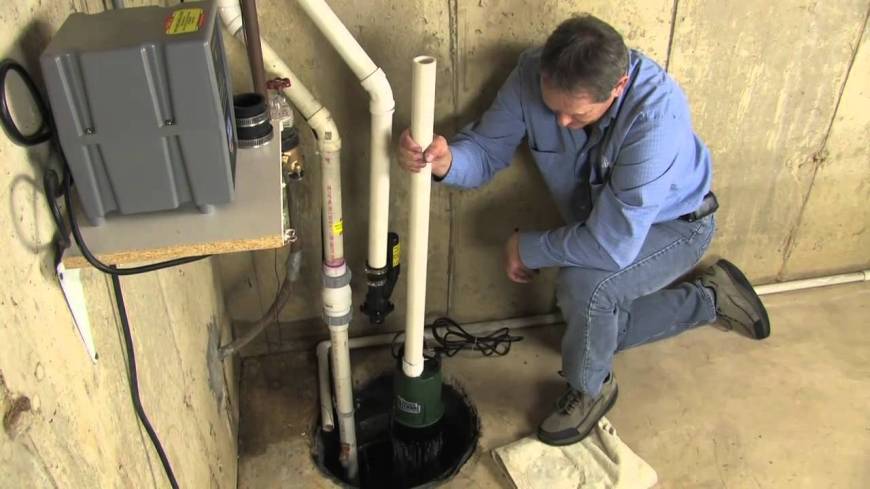Fast Solutions for Caring for a Sump Pump
Fast Solutions for Caring for a Sump Pump
Blog Article
This great article below on the subject of Steps to Cleaning Your Sump Pump Properly is absolutely engaging. Read it for yourself and decide what you think about it.

Sump pumps are crucial elements in lots of homes, particularly in locations prone to flooding or extreme wetness. They help stop water damage by effectively removing excess water from basements or crawl spaces. Nevertheless, like any other home appliance, sump pumps require regular upkeep to ensure they work successfully when required the most. Cleansing your sump pump is a crucial part of its maintenance, and recognizing just how to do it properly can conserve you from costly repair work and prospective calamities.
Intro
Preserving a tidy sump pump is crucial for its correct performance and longevity. Disregarding this vital task can lead to blockages, malfunctions, and eventually, water damage to your residential or commercial property. As a result, discovering exactly how to clean up a sump pump is crucial for property owners who count on these devices to keep their basements dry and protected.
Signs of a Dirty Sump Pump
Knowing when your sump pump requires cleaning is essential for stopping prospective malfunctions. Some usual indicators that suggest an unclean sump pump consist of weird sounds throughout operation, minimized water circulation, and noticeable debris in the pit. If you notice any of these signs and symptoms, it's essential to clean your sump pump promptly to prevent any more issues.
Getting ready for Cleansing
Before you start cleansing your sump pump, it's necessary to take some safety and security precautions. Start by turning off the power to the pump to avoid any kind of electrical crashes. Additionally, use proper safety gear, such as gloves and goggles, to safeguard yourself from dust, debris, and possible microorganisms.
Understanding the Sump Pump
Before diving right into the cleaning process, it's essential to have a standard understanding of exactly how a sump pump works. Typically mounted in a pit or basin listed below the basement floor, a sump pump contains numerous vital elements, consisting of a pump, a float switch, and a discharge pipeline. When water gathers in the pit, the float switch triggers the pump, which then pumps the water out via the discharge pipeline, away from the structure's foundation.
Detailed Guide to Cleaning Up a Sump Pump
Shutting down the Power
Begin by disconnecting the power supply to the sump pump to prevent any crashes while cleaning.
Checking for Appropriate Performance
Before reinstalling the pump, perform a fast test to guarantee that the float switch activates the pump correctly. Put some water right into the sump pit and observe the pump's operation. If every little thing is working appropriately, you can reassemble the pump and reconnect the power supply.
Getting Rid Of Debris and Dust
Utilize a bucket or a scoop to eliminate any kind of noticeable debris, dirt, or sediment from the sump pit. Dispose of the debris effectively to avoid it from blocking the pump or the discharge pipeline.
Cleaning the Pump and Float Switch Over
When the pit is clear of debris, carefully eliminate the pump from the pit. Inspect the pump and the float switch for any kind of signs of damages or wear. Utilize a soft brush or towel to clean the surfaces and remove any built up gunk.
Purging the System
After cleaning up the pump and float button, purge the sump pit with tidy water to remove any type of continuing to be dust or sediment. This will assist ensure that the pump operates efficiently and efficiently.
Upkeep Tips to Maintain Your Sump Pump Clean
In addition to routine cleaning, there are numerous upkeep suggestions you can comply with to maintain your sump pump in optimum condition:
Verdict
Cleansing your sump pump is a vital element of its upkeep and guarantees that it operates successfully when you require it one of the most. By complying with the actions detailed in this overview and incorporating routine upkeep right into your routine, you can extend the life-span of your sump pump and shield your home from water damage.
How To Clean a Sump Pump
Prepare The Materials
Plastic sheet or tarp Garden hose Scraping tool (putty knife or plastic scraper) Large bucket Wet/dry vacuum Remove the Sump Pump from the Power Supply
Unplug the sump pump from the power outlet or turn off the circuit breaker. Don’t skip this step, as it is crucial for your safety.
Cut Off Any Water Source
Lock all systems that drain into the sump pit, and inform everyone not to use them. Doing this step will prevent water from flowing into the pit while you’re cleaning.
Wrap the Bottom of the Pump
Place the pump in an area where you can clean it from all sides. Wrap the bottom portion of the sump pump with plastic tarp/sheeting for easier cleanup.
Clean the Pump
Sprinkle water onto the pump using a garden hose to loosen the debris. Ensure to spray all sides and openings. Remove any hard-stuck gunk with a scraping tool.
Rinse the Pump
Splash water again onto the pump using the garden hose. Doing so will flush down any remaining debris and gunk.
Drain the Check Valve
The check valve is a component of the sump pump that helps drain water and prevents it from flowing back. Open the valve and ensure to catch the drained liquid with a bucket.
Remove Excess Water With a Wet/Dry Vacuum
Use a shop vac to remove all the remaining water in the pump. Besides your device, the wet/dry vacuum can also help clear spills in the area where you cleaned the device.

As an enthusiastic person who reads about How to Care for Your Sump Pump, I was thinking sharing that blog post was worthwhile. Sharing is nice. Helping people is fun. Thanks for your time invested reading it.
Order Repair Report this page